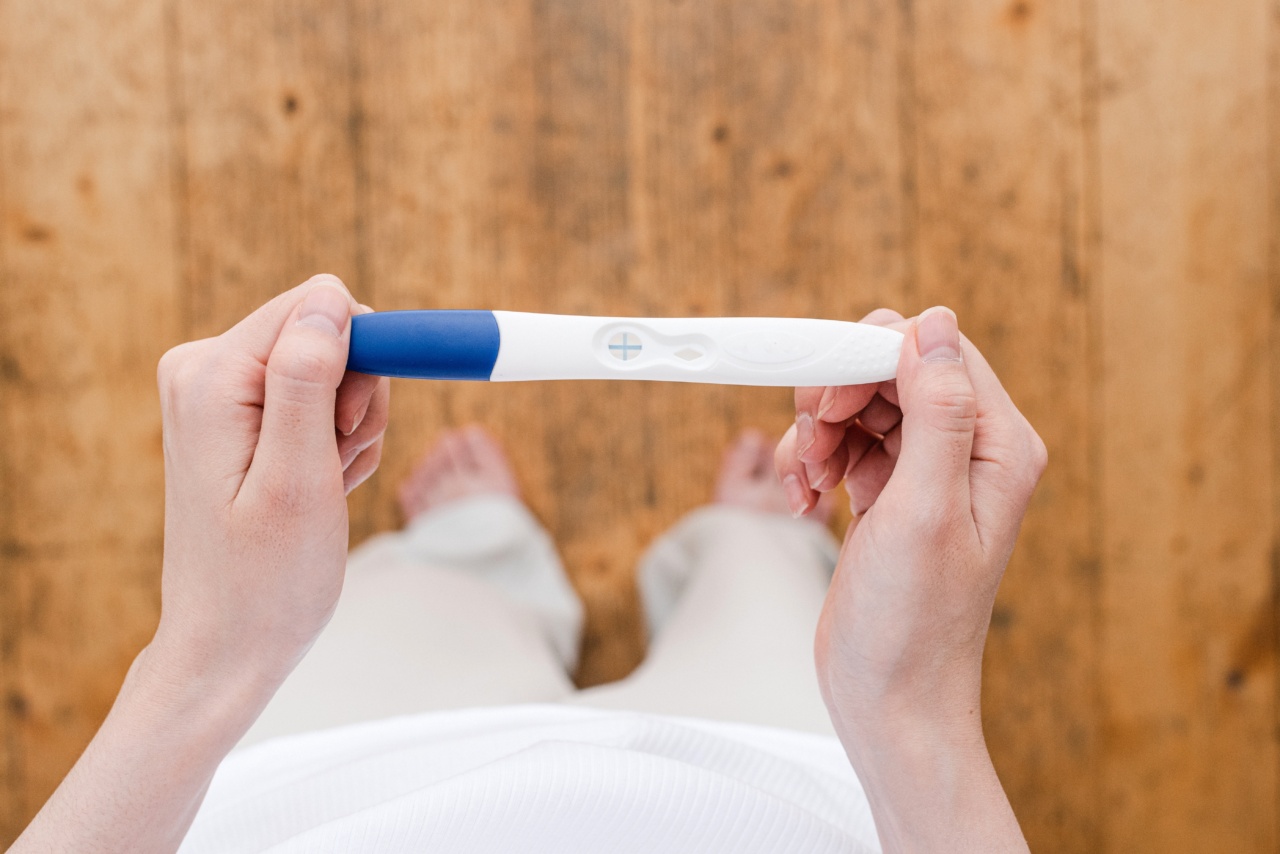The second trimester of pregnancy is considered as the most critical stage and begins from week 13 until week 28 of your pregnancy. It is during this time that your baby begins to grow rapidly, and various organs and systems develop.
As a result, pregnant women are recommended to go through various tests and examinations to ensure the well-being of both the mother and the growing fetus. Here are some important exams to take during the second trimester of pregnancy:.
1. Ultrasound Examination
Ultrasound examination is one of the most important prenatal examinations that are often conducted during the second trimester. It is a non-invasive process where high-frequency sound waves are used to capture images of the fetus inside the womb.
The ultrasound exam helps the doctor to assess the growth of the fetus, monitor the development of important organs, detect any abnormalities, and determine the gender of the baby. During the ultrasound examination, the position of the placenta and the amount of amniotic fluid are also checked. The doctor also checks for any anomalies in the umbilical cord and the baby’s heart rate to ensure proper blood flow and oxygenation.
2. Blood Test
A blood test is also one of the important exams you should take during the second trimester of pregnancy.
Your doctor may recommend different types of blood tests around 15 to 20 weeks of pregnancy to check for any health concerns. Some of the common tests include:.
- Complete Blood Count (CBC) to check for anemia and infection.
- Rh factor to check for any incompatibility issues.
- Serum screening tests to check for the risks of Down syndrome and other chromosomal abnormalities.
- Gestational Diabetes test to check for any glucose abnormalities.
- Antibody screening tests to check for any blood group incompatibility risks between mother and the baby.
3. Glucose Screening Test
The glucose screening test or glucose challenge test is done between 24-28 weeks of pregnancy to test for gestational diabetes.
This test is recommended because high sugar levels can pose a risk to the baby’s health and can lead to premature delivery or complications during labor. In this test, you need to drink a sweet liquid, and after the hour, your blood sugar levels are checked. If the results indicate higher than average levels, more testing will be done to find out if you have diabetes.
4. Group B Strep Screening Test
Group B strep is a type of bacteria that is often present in the vagina or rectum and can be transferred to the baby during delivery. It can cause complications like pneumonia, sepsis, and meningitis in the newborn.
Therefore, group B strep screening is often recommended for expecting mothers between weeks 35 to 37 of pregnancy. During this test, a vaginal and rectal swab is taken to check for the presence of the bacteria, and if found, antibiotics are usually administered during delivery to minimize the risk of infection to the baby.
5. Non-Stress Test (NST)
The non-stress test is another crucial prenatal examination often done in the second trimester of pregnancy. It is used to test the fetal well-being and check for any baby complications.
The test is non-invasive, and it is done by placing two sensors on the mother’s belly. One sensor checks for the fetal heartbeat, while the other monitors uterine contractions. The goal of the test is to check the baby’s heartbeat during active and resting states. Any changes in the heartbeat pattern can indicate fetal distress, and immediate action will be taken to ensure the safety of the baby.
6. Fetal Movement Count (FMC)
The fetal movement count is another essential exam that is done by most medical practitioners during the second trimester of pregnancy.
The test is simple and can be done at home, depending on your doctor’s recommendation. In this test, mothers are advised to count the number of fetal movements within a certain timeframe. A decrease in fetal movements can signal a potential problem that needs further examination from a medical practitioner.
7. Anatomy Scan
The anatomy scan is usually done between weeks 18 to 22, and it is also an essential prenatal examination.
The routine ultrasound is used to check the baby’s growth and development, the placental position, the amount of amniotic fluid, and the baby’s vital organs and systems. During this time, the technician looks at the baby’s head, face, heart, stomach, bladder, spine, and limbs to check for any abnormalities. The goal is to make sure everything is developing correctly, and there are no structural defects.
8. Pelvic exam
The pelvic exam is usually performed at the beginning of the second trimester to ensure that the cervix is closed and there are no underlying issues.
The pelvic exam is also used to check for any infections like yeast infections or sexually transmitted infections that could affect the baby. During the pelvic exam, the doctor also checks for any signs of preterm labor, which is often critical during the second trimester of pregnancy. The exam is usually done annually for non-pregnant women and every trimester for pregnant women.
9. Blood Pressure Monitoring
Blood pressure monitoring is one of the essential exams you should take during the 2nd trimester of pregnancy.
High blood pressure during pregnancy can be a sign of a severe condition like preeclampsia. Preeclampsia can affect both the mother and the unborn child and can lead to premature delivery, low birth weight, and other complications. As a result, monitoring blood pressure is crucial during prenatal examinations, especially in the second trimester.
10. Cervical length measurement
The cervical length measurement is another important test that is usually done between 18-24 weeks. The exam is important to check for any potential risk of preterm labor.
The doctor usually uses transvaginal ultrasound to check the cervical length. If the measurement is shorter than average, it could be a sign that the baby is at risk of being delivered prematurely. However, if detected early enough, there are a lot of measures the doctors can use to delay or prevent premature delivery.
Conclusion
During the second trimester of pregnancy, it is vital to undergo a range of prenatal examinations to ensure the well-being of both the mother and the baby.
With the above tests, you can ensure that your baby is growing healthily and reduce any potential risks that could arise during pregnancy or childbirth. Therefore, schedule regular check-ups with your doctor and follow any recommendations that they make based on your unique pregnancy journey.


























